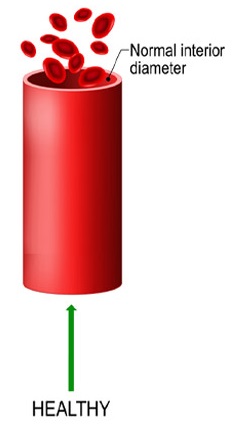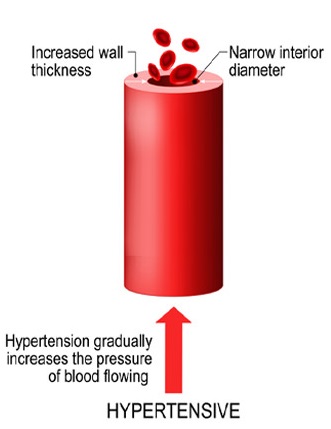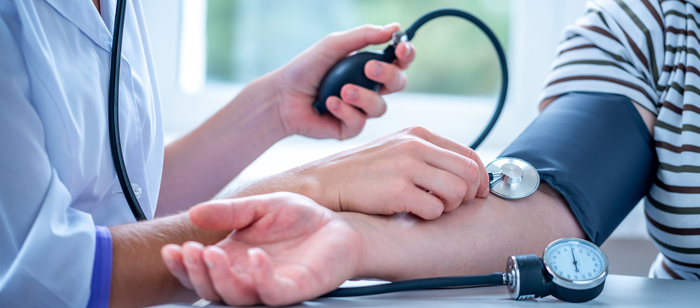What is hypertension or high blood pressure? Hypertension is when your blood pressure increases to unhealthy levels.
Your blood pressure measurement takes into account the amount of blood passing through your blood vessels and the amount of resistance the blood meets while the heart is pumping.

Narrow arteries increase resistance. The narrower your arteries are, the higher your blood pressure will be. Over the long term, any increase in your blood pressure can cause health issues, including heart disease.

Hypertension is quite common, with one in every four men and one in every five women in Australia suffering from high blood pressure.
Hypertension typically develops over several years. Usually, you don’t notice any symptoms. But even without symptoms, high blood pressure can cause damage to your blood vessels and organs, especially the brain, heart, eyes, and kidneys.
Early detection is essential. Regular blood pressure readings help you and your doctor notice any changes. If your blood pressure is elevated, your doctor may have you check your blood pressure over a few weeks to see if the number stays elevated or falls back to normal levels.
Treatment for hypertension includes both prescription medication and healthy lifestyle changes. If the condition isn’t treated, it could lead to health issues, including heart attack and stroke.
What causes high blood pressure?
For most adults, there’s no identifiable cause of high blood pressure. This type of high blood pressure, called primary (essential) hypertension, tends to develop gradually over many years.
Some people have high blood pressure caused by an underlying condition. This type of high blood pressure, called secondary hypertension, tends to appear suddenly and cause higher blood pressure than primary hypertension. Various conditions and medications can lead to secondary hypertension, including:
- Obstructive sleep apnea
- Kidney disease
- Adrenal gland tumours
- Thyroid problems
- Certain defects you’re born with (congenital) in blood vessels
- Certain medications, such as birth control pills, cold remedies, decongestants, over-the-counter pain relievers and some prescription drugs
- Illegal drugs, such as cocaine and amphetamines
Primary hypertension
Primary hypertension is also called essential hypertension. Most people have this type of high blood pressure. This kind of hypertension develops over time with no identifiable cause.
Researchers are still unclear about what mechanisms cause blood pressure to increase slowly. A combination of factors may play a role. These factors include:
Secondary hypertension
Secondary hypertension often occurs quickly and can become more severe than primary hypertension. Several conditions that may cause secondary hypertension include:
- kidney disease
- obstructive sleep apnea
- congenital heart defects
- problems with your thyroid
- side effects of medications
- use of illegal drugs
- alcohol abuse or chronic use
- adrenal gland problems
- certain endocrine tumours
What are the symptoms of hypertension?
Hypertension is called a “silent killer”. Most people with hypertension are unaware of the problem because it may have no warning signs or symptoms. For this reason, blood pressure must be measured regularly.
When symptoms do occur, they can include early morning headaches, nosebleeds, irregular heart rhythms, vision changes, and buzzing in the ears. Severe hypertension can cause fatigue, nausea, vomiting, confusion, anxiety, chest pain, and muscle tremors.
The only way to detect hypertension is to have a health professional measure blood pressure. Having your blood pressure measured is quick and painless. Although individuals can measure their blood pressure using automated devices, an evaluation by a health professional is essential for assessing risk and associated conditions.
[DISPLAY_ULTIMATE_SOCIAL_ICONS]

